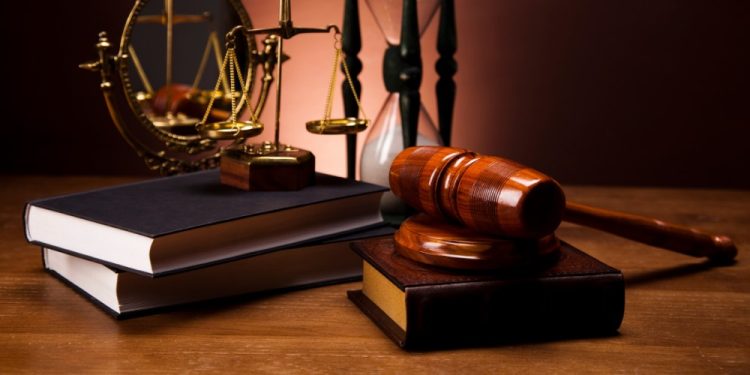Legal metrology is a critical aspect of ensuring fairness, accuracy, and transparency in trade and commerce. It involves a set of regulations and standards that govern the use of measuring instruments, units of measurement, and their calibration. Legal metrology is a crucial framework that underpins modern trade, ensuring consumer protection. By adhering to its principles and regulations, businesses can build trust with consumers, and consumers can have confidence in the products they purchase. It’s an integral part of a well-functioning and transparent market economy.
What is legal metrology?
Legal metrology is a branch of metrology (the science of measurement) that focuses on the regulation and control of measurements used in various commercial activities. Its primary purpose is to protect consumers, facilitate fair trade, and ensure trust in measurements. Legal metrology establishes rules and standards for measuring instruments, units of measurement, and their use in trade and industry.
Significance of legal metrology
Here are the importance of legal metrology.
1. Consumer protection
Legal metrology serves as a shield for consumers, guaranteeing that the products they purchase meet the specified standards in terms of quantity and quality. This protection fosters trust between consumers and businesses.
2. Facilitating fair trade
By establishing a uniform system of measurement, legal metrology promotes fair competition in the market. It levels the playing field for businesses, preventing any unfair advantage due to inaccurate measurements.
3. Ensuring health and safety
In sectors like healthcare, legal metrology is indispensable. From accurate dosages in pharmaceuticals to precise medical instruments, it plays a pivotal role in ensuring patient safety and effective treatments.
4. Environmental conservation
Legal metrology extends its influence to environmental protection. In industries such as energy, accurate measurement of resources like electricity, gas, and fuel is crucial for efficient use and minimizing environmental impact.
5. International trade
For seamless international trade, adherence to legal metrology standards is paramount. Consistent measurements across borders facilitate smooth transactions and prevent disputes.
Principles of legal metrology
Here are the principles of legal metrology.
1. Traceability
Measurements must be traceable to internationally recognized standards, ensuring consistency and reliability. This traceability forms the backbone of accurate measurements.
2. Accuracy and precision
Legal metrology demands that measuring instruments provide both accuracy (closeness of the measurement to the true value) and precision (reproducibility of the measurement). Instruments must meet specified tolerances to ensure reliability.
3. Uniformity in units
Standardization of units of measurement is essential to maintain consistency across sectors and geographical boundaries. This uniformity simplifies transactions and enhances understanding.
4. Approval and verification
Measuring instruments undergo rigorous testing, verification, and certification processes. These procedures ensure that instruments meet legal standards before they are used in commercial transactions.
5. Sealing and stamping
To signify accuracy and legality, measuring instruments are sealed or stamped. These seals serve as visible indicators that the instrument has passed the necessary tests and is fit for use in trade.
6. Mandatory verification
Regular checks and recalibrations of measuring instruments are mandatory. This periodic verification guarantees that instruments maintain their accuracy over time, providing reliable measurements consistently.
Applications of legal metrology
Here are the applications of legal metrology.
1. Retail trade
Legal metrology ensures that products in retail, such as fruits, vegetables, and packaged goods, are sold by accurate weight or volume. This precision prevents discrepancies and fosters trust between buyers and sellers.
2. Healthcare
In the healthcare industry, legal metrology is critical. It governs medical devices, ensuring accurate readings and dosages. From blood pressure monitors to insulin pumps, precise measurements are imperative for patient well-being.
3. Pharmaceuticals
Pharmaceutical companies rely on legal metrology for quality control and precise dosage measurements. Patients’ safety depends on the accuracy of medications, making legal metrology an integral part of the pharmaceutical sector.
4. Food and beverage industry
Accurate measurements are essential in food processing and packaging. Legal metrology ensures that consumers receive the correct quantity of products, from packaged snacks to bottled beverages, enhancing customer satisfaction and trust.
5. Energy sector
In the energy sector, legal metrology governs the measurement of electricity, gas, and other forms of energy. Accurate measurement is crucial for fair billing and plays a significant role in promoting energy efficiency and sustainability.
6. Environmental monitoring
Legal metrology extends its reach to environmental sciences. Instruments measuring emissions, air quality, and pollutant levels adhere to legal metrology standards. Accurate data is vital for environmental assessments and policymaking.
Enforcement and compliance
Legal metrology is enforced by regulatory bodies and overnment agencies in each country. These entities conduct regular inspections, issue licenses for measuring instruments, and oversee compliance with legal standards. Non-compliance can result in hefty fines, product recalls, and damage to a company’s reputation.
Conclusion
Legal metrology stands as a cornerstone in the realm of trade and measurements. Its multifaceted significance, coupled with rigorous adherence to key principles, ensures that transactions are conducted fairly, accurately, and transparently. As technology advances and markets evolve, legal metrology continues to adapt, maintaining its pivotal role in safeguarding consumers, promoting fair trade, and fostering trust in the global economy.


































































































































































































